まなぶひと #16-English
Tobitate! Study Abroad Initiative First Participants of the Yamagata Regional Development Course
Double Internships at Yamagata and Abroad to Develop Glocal Human Resources
2019.06.30
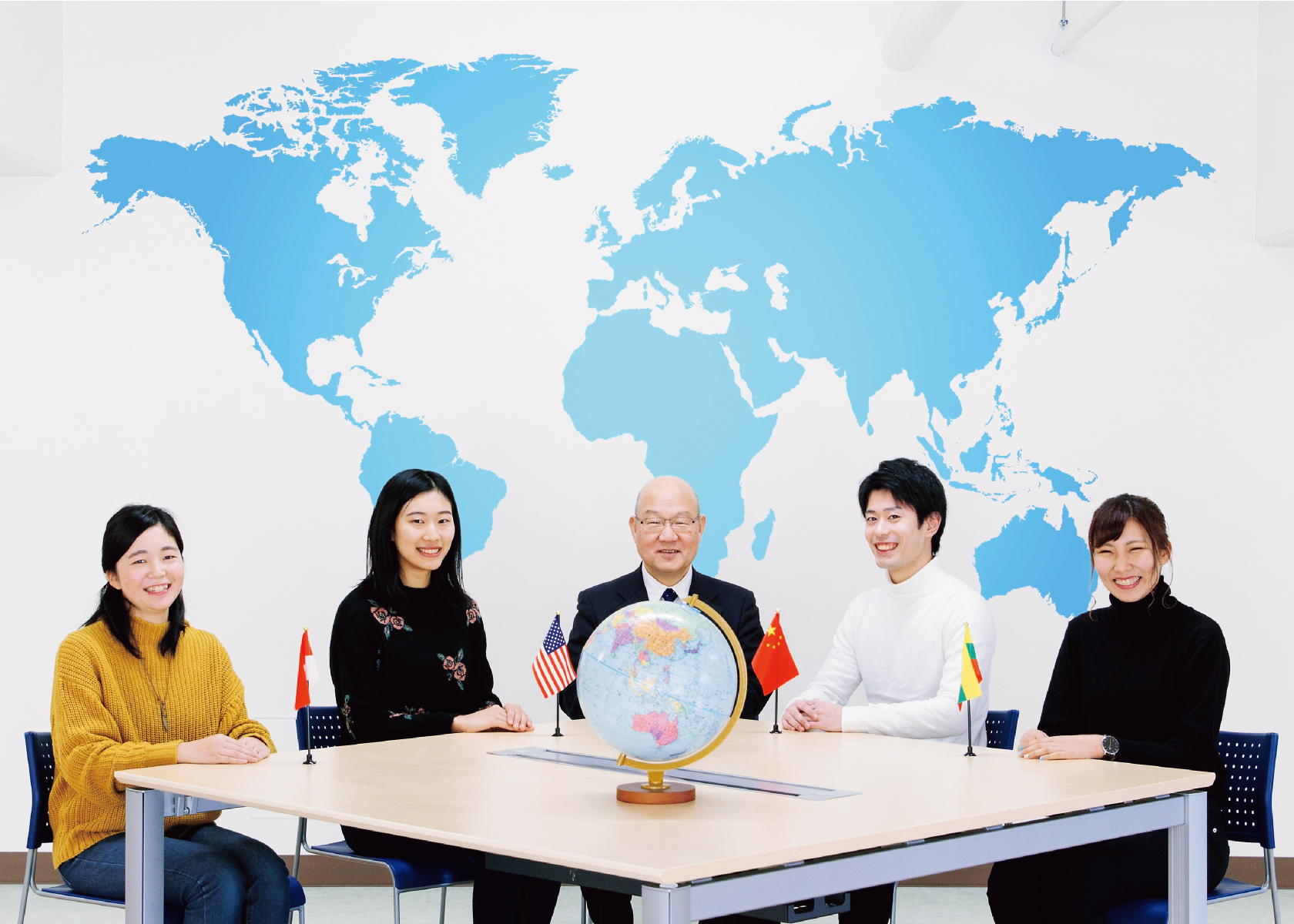

まなぶひと #16-English
Tobitate! Study Abroad Initiative First Participants of the Yamagata Regional Development Course
2019.06.30

Fourteen students became the first members to partake in double internships at companies in Yamagata and abroad as part of the Glocal Human Resource Development Program to Open the Future of Yamagata . Four of the students sat down as representatives of the scholarship group to talk about their internship experiences in Myanmar, China, the US and Indonesia. Professor Hironori Yasuda, an Executive Director in charge of International Exchange, led the dialogue with the students. They each talked about what they experienced and how their values have changed. They also recognized anew the significance and appeal of this unique program that provides an opportunity to take part in double internships in Japan and overseas.
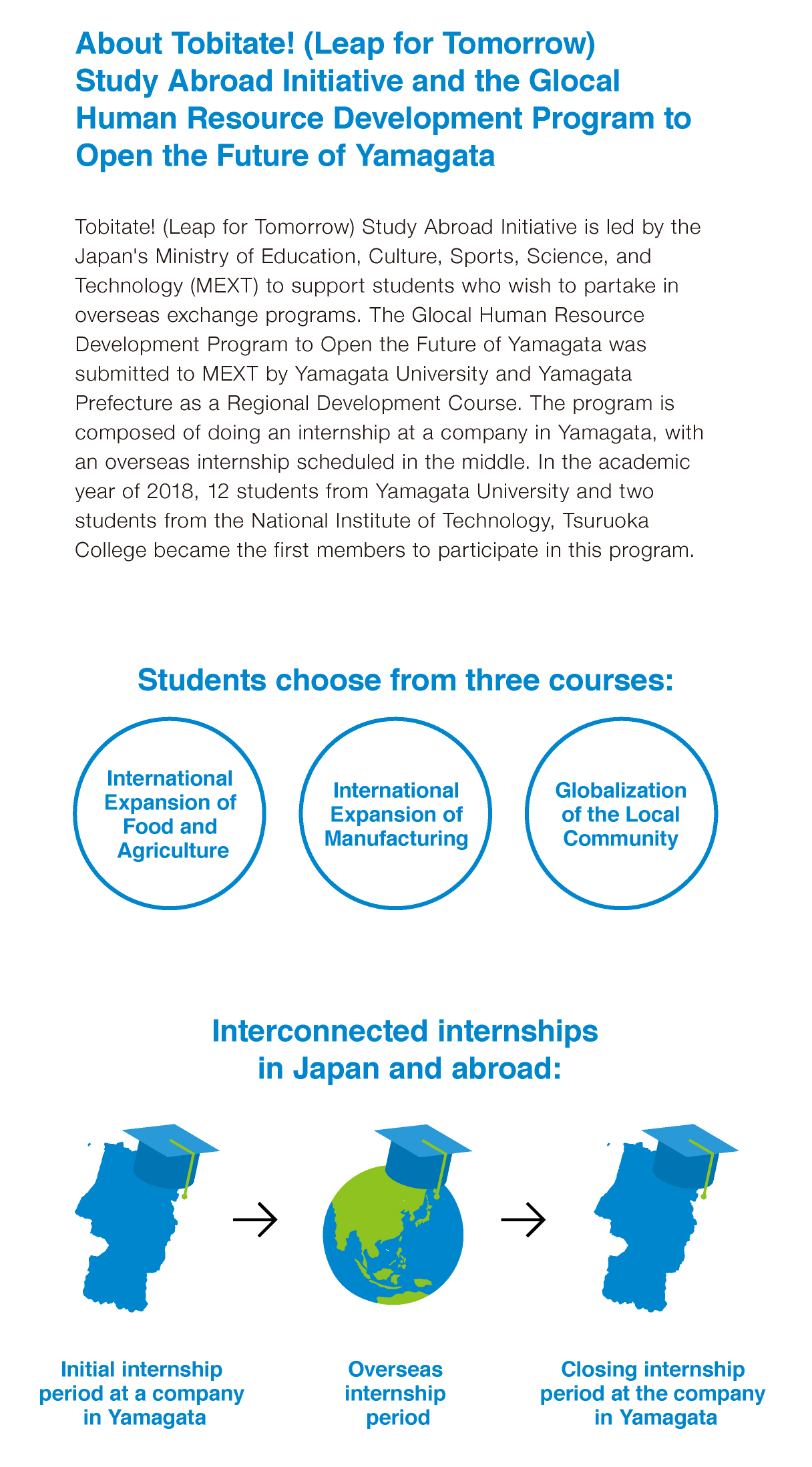
Yasuda: To start off, tell me where you went to do your internships and what made you want to take part in the program.
Otomo: I went to Myanmar, which I had visited once before as part of my undergraduate coursework. I wanted to reconnect with the students I got to know last time, study with them again and also improve my English. Being with them and seeing their advanced language skills was very motivating. For my internship in Japan, I chose Yamagata Shimbun, the prefecture's local newspaper, to get to know more about Yamagata.
Kakizaki: I did my internship at Yamamoto Co., Ltd. in Higashine City. It's a company that manufactures environmentally friendly products such as grain dryers and coin-operated rice milling machines. For my internship abroad, I went to the company's affiliate factory, Suzhou Mizuho Machinery Co., Ltd. in China. What led me to participate in this program was dissatisfaction with the way my university life was going. Dedicating every day to just studying and doing club activities wasn't any different from high school. I wanted to do something more exciting and challenging.
Yasuda: I met with the President of Yamamoto around two years ago about this program, and he told me that students from our Faculty of Agriculture have joined the company after graduating and are working hard. Let's continue. Ms. Shibata?
Shibata: My internship in Japan was at CHINO Corporation Yamagata Factory in Tendo City. For my overseas internship I was accepted to the NPO Breathe California in the US. I was always interested in overseas employment or doing work outside of Japan, so I joined the program hoping to learn more about how people abroad work and interact with local communities.
Shimura: I was always interested in the field of international cooperation, so for my internship in Japan, I joined the certified NPO IVY, which provides aid to refugees. For my overseas studies, I went to Muhammadiyah University in Indonesia, where a senior from my research lab is currently teaching. The topic of my research is the influence river snails have on rice paddies, so I joined this program hoping to see if the same sort of effects observed in temperate climates such as in Japan are also present in tropical climates.
Yasuda: There are many exchange students from Indonesia in our Faculty of Agriculture. The student Ms. Shimura mentioned, who is teaching at Muhammadiyah University, used to be a member of my research lab.
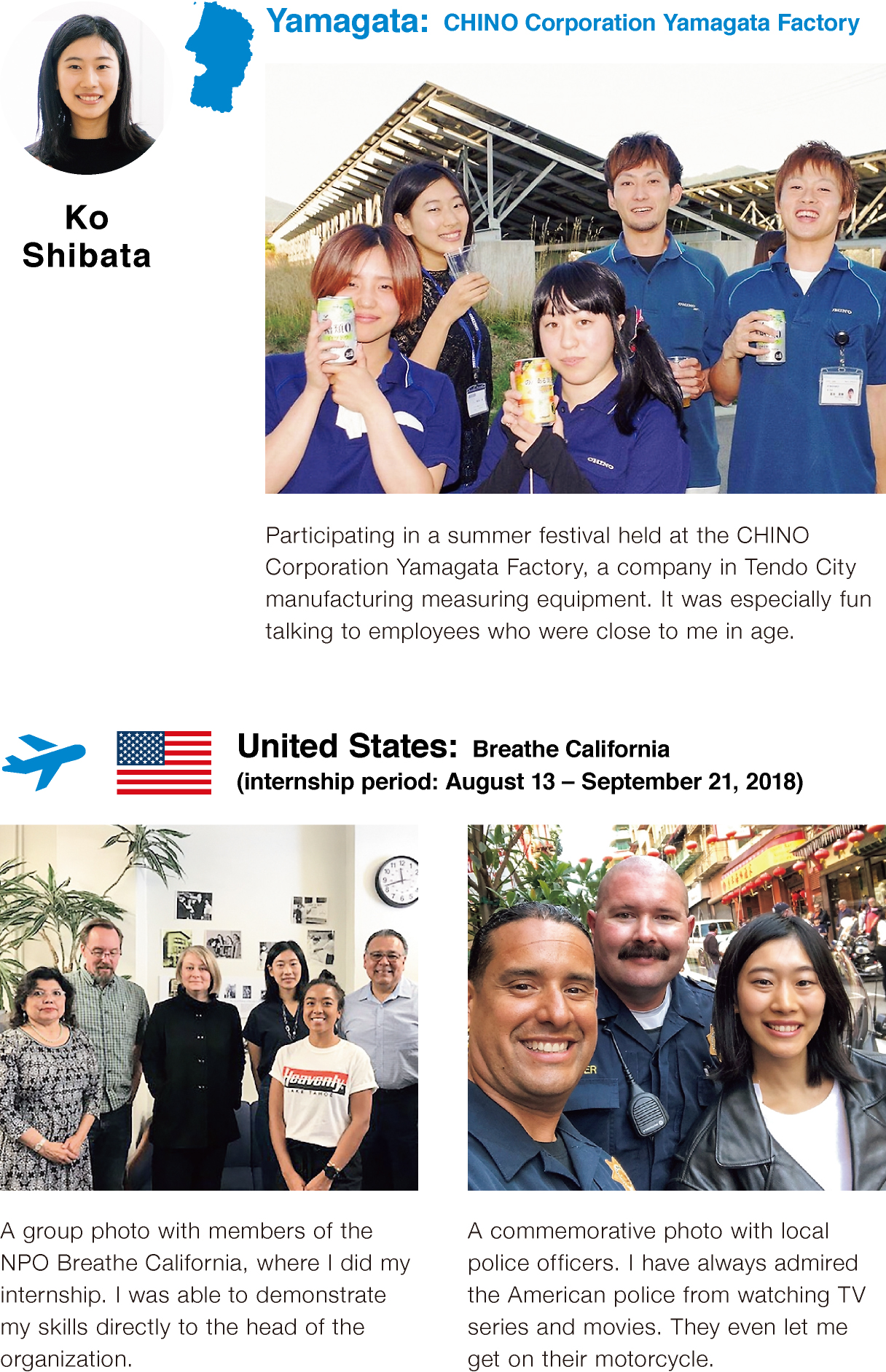
Yasuda: Next, let me ask each of you to describe in more detail some of the experiences you had during your internships.
Otomo: I was given the opportunity to teach Japanese at the school in Myanmar, so I taught the students hiragana and katakana. In addition, since my internship in Japan was at a newspaper company, I went to three news companies in Myanmar and conducted interviews. Before starting my internship at Yamagata Shimbun, when I thought of newspaper companies, I thought of reporters. But in truth, there are so many departments and divisions it felt like walking through a shopping market of professions. I was able to learn so much at Yamagata Shimbun, and I feel that all the experiences have helped me grow immensely.
Kakizaki: In my case, when I proposed an idea and said I wanted to try something like this, the people at my internship company were always very flexible and gave me the go ahead. One of my most memorable instances was when I accompanied employees from the company to fix a foreign-made grain dryer in China. The size of the machine was so different from what I was used to seeing in Japan and its hugeness made me really realize the difference between Japan and the world.
Yasuda: I can relate. The sheer scale of things in China and the US are of a different level.
Shibata: During my time at CHINO in Japan, I got to experience different departments and even took part in manufacturing product components. Interns are usually treated as outsiders and relegated to periphery activities, but one of my most memorable experiences was being allowed to travel to Tokyo on a business trip as a member of the company. I was also able to take part in a community cleaning activity that was conducted together with all the companies in Tendo City. Thanks to this opportunity, I was able to talk to people from other organizations and look at companies from the perspective of working members of society. In the US, I made it a point to say I'm good at chemistry and got to work in related fields.
Yasuda: During an opinions exchange session we once held with corporations regarding internship matters, someone from a company commented that a beneficial part of internships is being able to communicate with young people. Employees get to interact with the students, listen to their thoughts and ideas, and take in a variety of new perspectives.
Shimura: During my internship in Japan at IVY, I learned about projects in workshop-style sessions and was entrusted with the task of collecting materials and documents to draw up plans. I was also involved in summarizing assessments following the end of a certain project. In Indonesia, I created a mini rice paddy inside a container and experimented on the effects the presence of river snails, or lack thereof, had on the environment.
Yasuda: A lot of attention is being given to river snails right now as an alternative method of farming rice without using chemicals. This stems out of concern for the effects of pesticides and chemical fertilizers on the environment and the human body. It has long been said that the presence of river snails in rice paddies produces an abundant harvest.
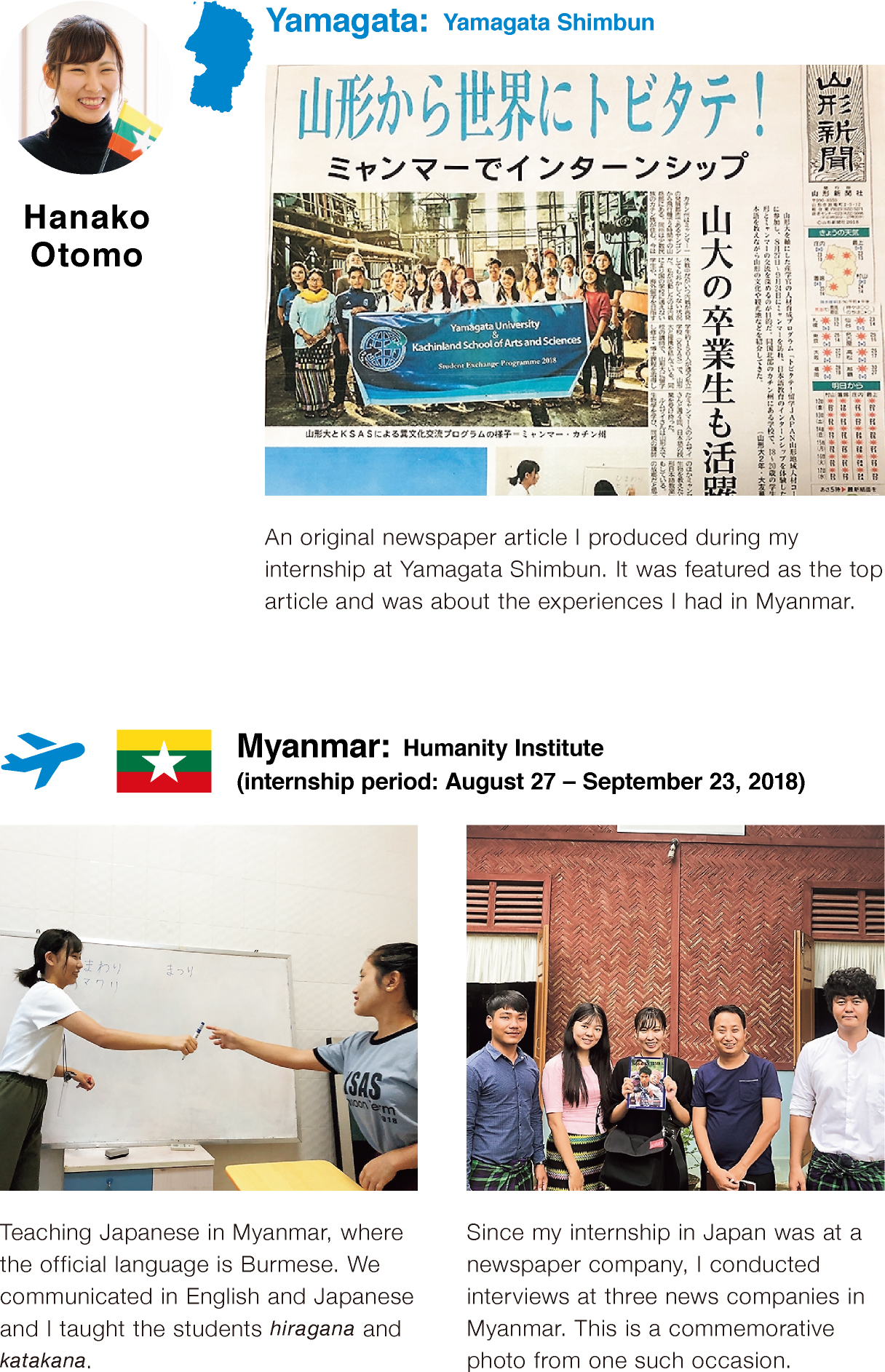
Yasuda: Next, let's talk about what went well or what aspects you struggled with.
Otomo: The school I went to never had a Japanese teacher, so everyone was very happy to be able to learn Japanese from a Japanese person for the first time. It made me feel very welcome, and since the students and I were around the same age, I believe we were able to create a friendly and easy-going environment. I'm still in contact with the students now. We talk over the phone and communicate via messaging apps.
Yasuda: These sorts of connections are very important and valuing them will lead to creating positive networks. On the topic of being of the same generation, there is a program for student ambassadors to go and teach Japanese at overseas satellite campuses. The program receives a lot of requests for Japanese students, and it seems a large part of it is about learning from someone of the same generation. In a lot of the cases, older people are teaching Japanese at those locations abroad, but they say learning from people of the same generation results in improving faster since the topics of discussion are much more familiar and relevant to the students.
Kakizaki: I had a hard time getting my visa arranged, and it still hadn't arrived right up until the time I needed to leave. Somehow, I managed to make things work out and got to leave on time, and I was pleasantly surprised at what I was capable of doing if I put my mind to it. Communication at the company abroad was in Chinese and English. I struggled at first but was gradually able to overcome the language barrier and better understand the nuances of what everyone was saying.
Yasuda: Traveling overseas alone is difficult, but the challenges make for a great learning experience. It's totally different from traveling in a group. You have only yourself to rely on after all. But after you go through the experience once, you'll be able to handle various situations better from next time on.
Shibata: I made a presentation on the last day of my internship both in the US and Japan. Before, I would have probably said no, but this time I said I'd do it. I hurried to put everything together the day before and made the presentation to the department director and chief managers of the office. I thought it went well and it gave me a lot of confidence for when I look for jobs.
Yasuda: This isn't exactly a case of being driven into a corner, but when push comes to shove, we often find a way of getting things done. It's better to put yourself out there and try, rather than not trying at all and regretting it. Even if you fail, it's far more beneficial to be able to learn something from the experience. What about you, Ms. Shimura?
Shimura: In Indonesia, I couldn't use the lab or its equipment freely, which made it difficult to conduct experiments according to plan. It made me realize how privileged our research environments are in Japan. On the other hand, the people in Indonesia are so kind. They help each other out like it's second nature, and I was very moved by how many local students came to help me with my experiment.
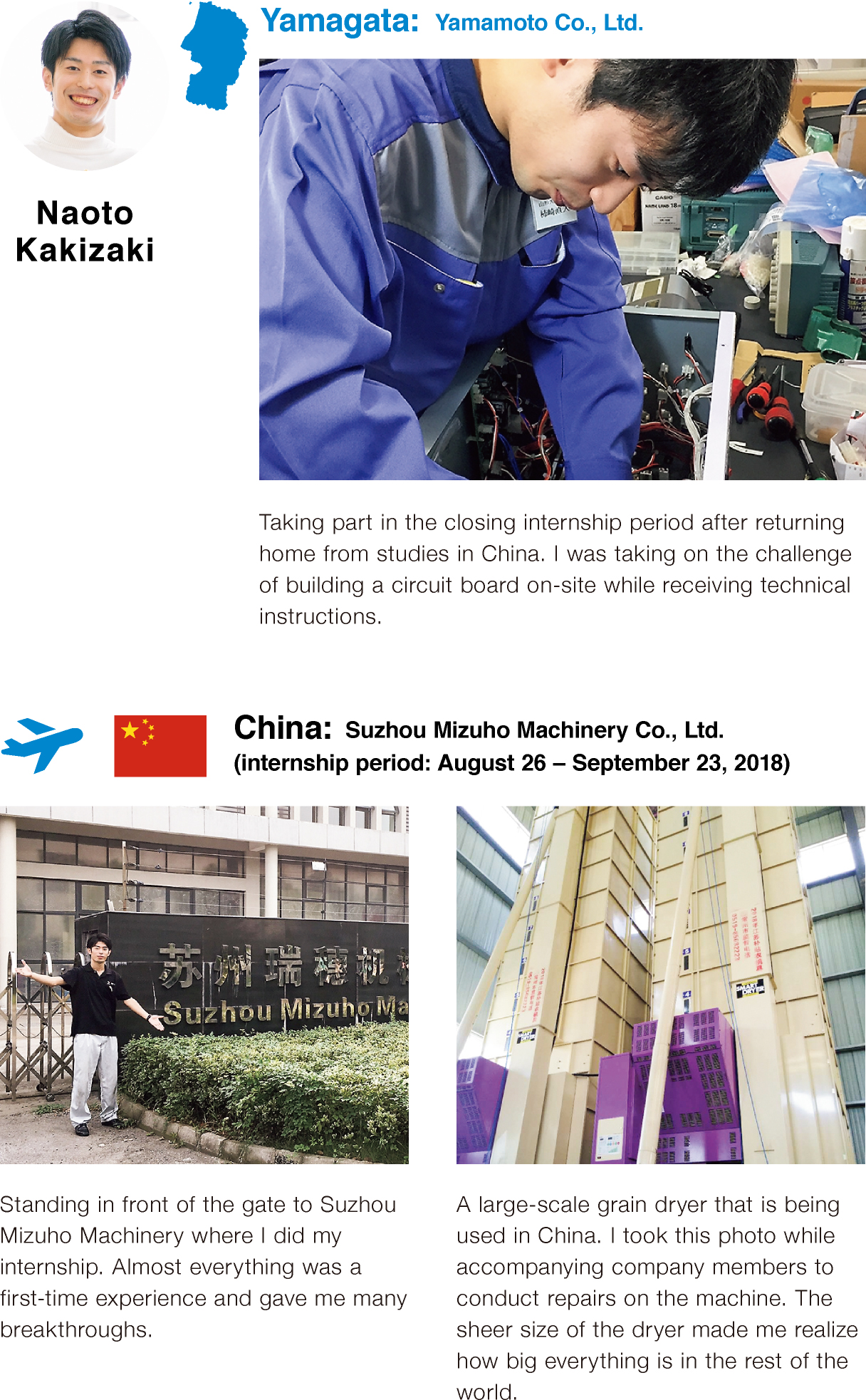
Yasuda: Did anything change after traveling abroad, or were there shifts in your senses of value?
Otomo: It was my first time traveling outside of Japan alone and I felt so lonely the first night at the hotel that I broke down crying. But I knew I was the only one who could encourage and pick myself back up, so I did my best. Thanks to that experience, whenever I run into an obstacle now, I tell myself, "If I could get through Myanmar, there's nothing I can't do." In fact, I've come to always take the bigger challenge these days. Also, when I saw the students in Myanmar working hard and studying with such motivation even in their underprivileged circumstances, I felt that I needed to make more of my time at university.
Kakizaki: After going through the internships , I'm not daunted by the prospect of traveling abroad anymore. At the same time, I got to know that there are companies right here in Yamagata that are capable of competing on a world stage, and it made me change the way I see the region. I also learned that people living overseas are just as kind as the people back home, and it made me want to get more internationally involved.
Yasuda: Literally, glocalization. After all, there are local companies that are growing, and some very passionate presidents.
Shibata: The internship experience made me act first and think later. I went to Vietnam on a whim just last week, and on a different occasion, I took part in a gathering of entrepreneurs. I've started thinking about human connections as well.
Shimura: I was deeply struck by all the different possible ways of perceiving and approaching matters. It made me believe that any crisis can be turned into an opportunity depending on how you look at things.
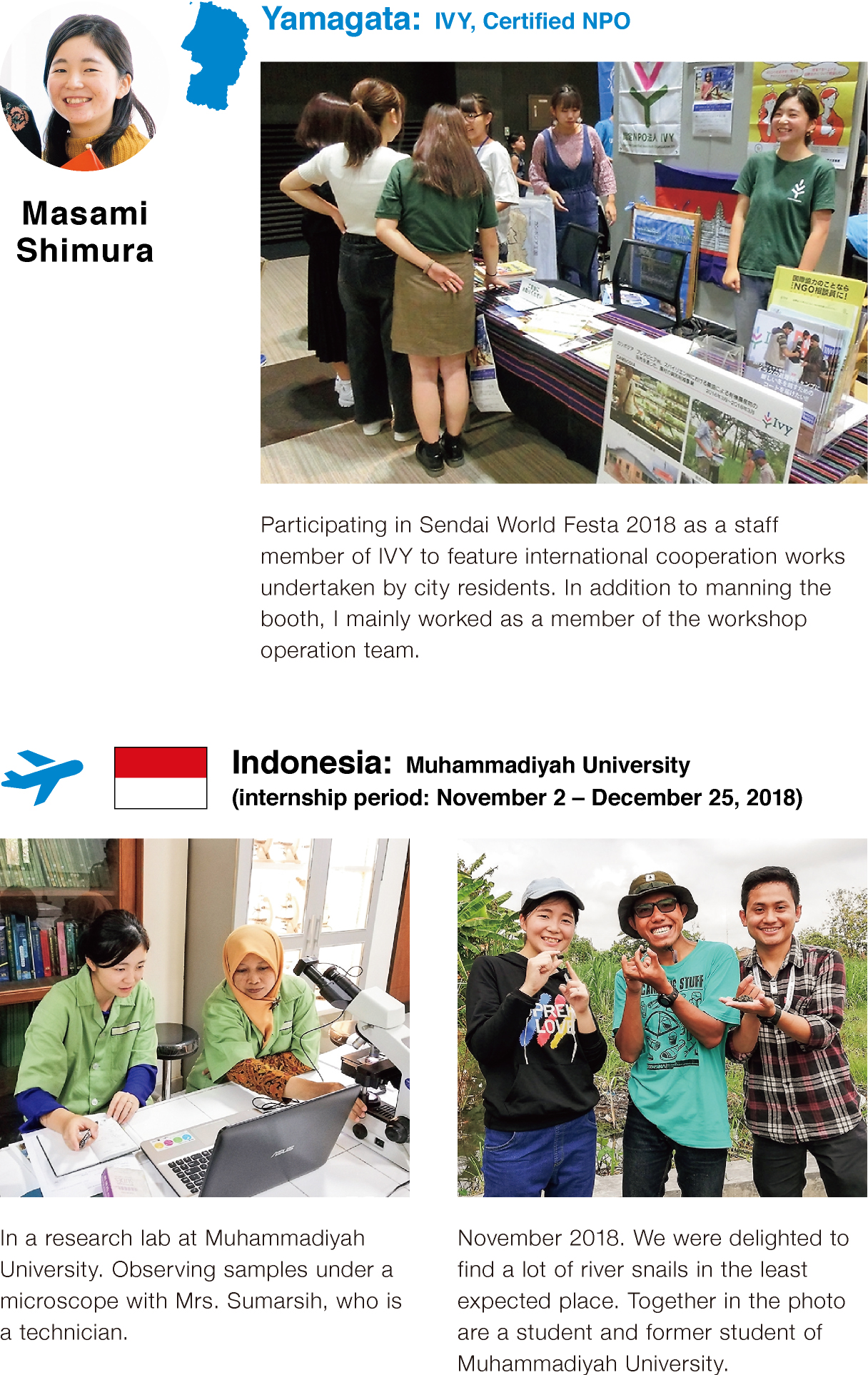
Yasuda: Lastly, what do you think are the merits of studying abroad? Please share anything that your juniors might be able to take it into consideration when thinking of participating in study abroad programs.
Otomo: When I tell people that I studied in Myanmar, a reaction I frequently get is, "Why?" I only have positive impressions of Myanmar. Even though there are some inconveniences in daily life, the food is delicious, and above all, the people are extremely nice. They enjoy helping people out and doing things for others. I'd like to really change the way people think of the country. The languages we speak may be different, but the people of Myanmar are very easy-going and will no doubt make you feel welcomed. Please, if you have a chance, visit Myanmar.
Kakizaki: I was the opposite and didn't really have a positive impression of China before I went. My family was also a little concerned. But once I got there, I found the sky over Suzhou incredibly blue and the people were very kind to me. It made me realize how important it is to not get misled by what we see on TV and the Internet. You have to experience it yourself and gain direct knowledge before making a decision. I want to tell everyone to take action and just go!
Shibata: I gained a greater sense of self-esteem by traveling abroad. I feel like I was able to find my bearings and let go of some of my worries. Until now, I thought since I was already 23, there was no other choice but to start looking for a job. But my roommates in the US all came from different backgrounds and after getting to know them and listening to their dreams and ambitions, I started to think, "I'm only 23. I still have time!" So now, I've stopped denying myself what I want to do.
Yasuda: That's great to hear. Your time at university gives you the greatest level of freedom and it's when you can challenge yourself to anything. Having self-esteem is very important.
Shimura: This may sound generic, but I think studying abroad lets you discover new ways of thinking. In Indonesia, where I did my internship, the people come from different ethnicities and cultures, so they are very open-minded about acknowledging and accepting one another. I think people who find it stifling in Japan will be able to discover that it's okay to be themselves over there.
Yasuda: Making the trip yourself and gaining direct experience is invaluable. I hope many of your juniors will follow in your footsteps and take the leap. Thank you all for sitting down today to share your thought-provoking experiences.
Production assistance: Ko Shibata
つづきを読む
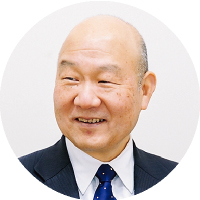
●Hironori Yasuda
Acting President, Executive Director (in charge of Academic, Student Affairs and International Exchange), Vice President. Born in Shimane Prefecture. Expertise in ecology and applied entomology. Graduated from the School of Agriculture at Utsunomiya University and completed the Doctoral Program at the Graduate School of Agricultural Sciences, Nagoya University. As the Executive Director in charge of International Exchange, Yasuda often travels abroad and has a heightened sense of global awareness.
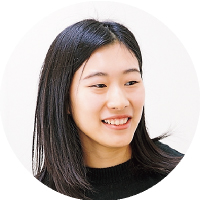
●Ko Shibata
Born in Akita Prefecture. Second-year student of the Graduate School of Science and Engineering. Shibata completed her domestic internship at CHINO Corporation Yamagata Factory and her overseas internship at the community based NPO Breathe California in the US. Shibata aims to further her expertise in her chemistry major to seek future employment or temporary work overseas .
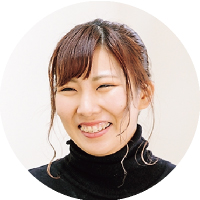
●Hanako Otomo
Born in Miyagi Prefecture. Third-year student of the Faculty of Humanities and Social Sciences. Otomo completed her domestic internship at Yamagata Shimbun and her overseas internship at the Humanity Institute in Myanmar, where she mainly taught Japanese. Otomo grew interested in Myanmar after visiting the country as part of her undergraduate coursework and decided to make it her internship destination.
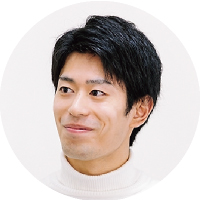
●Naoto Kakizaki
Born in Akita Prefecture. Fourth-year student at the Faculty of Engineering. Kakizaki completed his domestic internship at Yamamoto Co., Ltd. and his overseas internship at the company’s affiliated factory, Suzhou Mizuho Machinery Co., Ltd. Kakizaki signed up to the program looking for a challenge after spending three years at university feeling unsatisfied. During his internship abroad, he realized how much bigger everything was in the world compared to Japan.
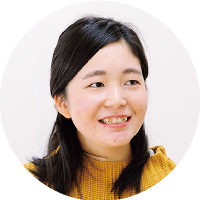
●Masami Shimura
Born in Saitama Prefecture. Second-year student at the Graduate School of Agricultural Sciences. Shimura completed her domestic internship at IVY, a certified NPO and her overseas internship at Muhammadiyah University in Indonesia, where she conducted research on the influences of river snails on rice paddies in tropical climates. Shimura hopes to continue being involved with Indonesia in the future through international cooperation work.